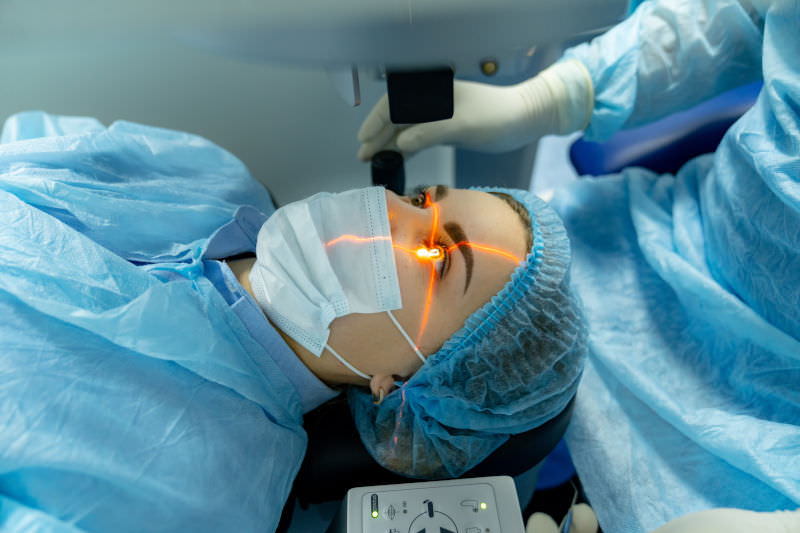Negligent surgery costs a young woman her ability to have children naturally
A heart-breaking story, recently reported by the BBC shows just how life-changing medical negligence through surgical errors can be.
Chelsie Thomas, a 27-year old woman, was left unable to have children naturally when a surgeon removed the wrong fallopian tube during an operation. She had suffered an ectopic pregnancy, a complication which involves the fertilised egg becoming lodged outside of the womb. In her case, it had become stuck in her right fallopian tube. Her treating doctors determined that the fallopian tube would have to be removed.
Ms Thomas, who worked as a healthcare assistant at the hospital where she was treated, allegedly told the surgeon that the scan showed the ectopic pregnancy was in her right fallopian tube, but that the surgeon had disagreed, saying, ”I’m a doctor, you should trust me”.
After the operation, she continued to suffer from her symptoms and it became apparent that Ms Thomas’ healthy left fallopian tube had been removed in error. She had to undergo further surgery to remove the remaining fallopian tube.
The hospital admitted it was liable for Ms Thomas’ negligent treatment and that it was working to ‘put systems in place to try and avoid such incidents in future’. However, Ms Thomas has spoken of the huge impact the surgery has had on all aspects of her life. She stated that her relationship with her partner had subsequently broken down, that she had lost her job, and that she was now on anti-depressants.
There are many different kinds of harm which can be included in compensation claims for personal injury and medical negligence. Psychological symptoms and the loss of earnings caused by an accident are just two examples, though in some cases, they may represent an even greater element of loss than the physical injuries. Clearly, however, in Ms Thomas’ case, the effect on her life of being no longer able to have children naturally was a catastrophic consequence of her injuries.
Informing patients of risks prior to surgery
Ms Thomas’ case is a clear example of a surgical procedure which was carried out negligently. However, this is far from the only way in which harm can be caused through negligence connected with surgery.
The case of Chester v Afshar [2004] UKHL 41 is a key case in relation to failing to fully inform a patient of the risks involved in a surgical procedure. In the case, Ms Chester successfully recovered compensation because she was not told of the risks of suffering cauda equina syndrome before she had a spinal operation. The risks of this occurring were estimated to be around 1-2%. Unfortunately however, this did occur during Ms Chester’s operation, despite it being found that surgery was not performed negligently.
Ms Chester claimed compensation. Her case was not that she would have never undergone the procedure had she known of the risks, but that she would not have had surgery at that time, perhaps seeking further advice and alternatives.
That Ms Chester’s claim was successful has been seen by some as a departure from more traditional ways of determining legal cause and effect. After all, the surgeon conducted the operation correctly and it was an inherent risk in the procedure which led to Ms Chester’s injuries. There was no indication that these risks would have been different at another time or with another surgeon.
Recently, however, another case took a seemingly different approach. In Pomphrey v Secretary of State for Health and North Bristol NHS Trust, which was decided in April 2019, Mr Pomphrey also suffered cauda equina syndrome following a spinal operation. He claimed that his condition was a result of deterioration which had been present prior to his operation. His claim for medical negligence centred on an argument that the permanent disability he had suffered would have been avoided had he been referred to a neurosurgeon sooner and undergone the operation sooner.
The judge ruled against Mr Pomphrey, however, preferring expert evidence which indicated that the delay would have made no difference to the disability Mr Pomphrey suffered and that the cauda equina was arose from the surgery itself as an inherent risk. Again, it was not claimed that the surgery had been negligently performed.
So why did Mr Pomphrey not succeed where Ms Chester did? After all, both claimants had suffered cauda equina as a result of low-risk complications in a surgical procedure. A subtle distinction can be drawn between the two cases, however. For Ms Chester, fully informing her of the surgical risks could be said to have been part of her doctors’ duty of care – and this is something which they failed to do. It is more debatable whether this actually ‘caused’ the harm she suffered – would she have had the surgery anyway even if she had been informed? The ruling could be seen as the courts giving greater legal protection to the need for informed consent.
For Mr Pomphrey however, the delay, which he alleged was the whole cause of his injuries, was held not to be responsible for the harm he suffered. He had wanted the surgery to be conducted sooner as opposed to alleging the complications inherent in the surgery would have put him off going through with it.
The subtleties between these cases highlight the need for specialist legal advice and expert evidence when evaluating possible medical negligence claims.
Allowing cohabitees to be eligible for bereavement awards
The first legislative steps have been taken to allow cohabitees rights to statutory bereavement awards following fatal accidents.
A draft order to amend the Fatal Accidents Act 1976 was introduced in May and is expected to allow a cohabitee, who has lived with their partner for at least two years, the same rights to a bereavement award as spouses and civil partners, in the event that their partner is killed through someone else’s negligence.
However, the draft order has some way to go before it comes into force and there is the possibility that its provisions may change during its progress through parliament.
Under the existing provisions of the Fatal Accidents Act 1976, there are generally two main ways in which someone can claim compensation for a loved one killed as a result of another’s negligence. These are:
- A dependency claim – where someone was dependent on the income, care, services, or pension of the person who was killed.
- A statutory bereavement award – a lump sum payment in respect of the bereavement, currently set at £12,980.
A wide range of people connected with the deceased person may make a dependency claim (provided they can prove the way in which they were dependent). Currently however, only spouses, civil partners, and parents (where the victim was an unmarried child under the age of 18), may claim the statutory bereavement award. The proposed amendment will add qualifying cohabitees to the list of those eligible to claim the award.
This change has been sparked by a legal case which followed a fatal instance of clinical negligence: Smith v Lancashire Teaching Hospitals NHS Foundation Trust [2017] EWCA Civ 1916.
The case arose after the death of John Bulloch, who died from an infection which was missed by doctors. The hospital trust admitted their failures were responsible for his death. Mr Bulloch’s cohabitee of over 11 years, Jacqueline Smith, brought a dependency claim against the trust and also argued that denying her the statutory bereavement award on the basis that the couple had never married was against her human rights. In particular, she argued it infringed her right to privacy and family life – under Article 8 of the European Convention on Human Rights (ECHR) – and that the existing fatal accident provisions were discriminatory on the grounds of marital status (under Article 14 of the ECHR). The Court of Appeal accepted her arguments and declared the current provisions of the Fatal Accident Act 1976 to be incompatible with the ECHR. The draft order, mentioned above, is intended to resolve this incompatibility.
If you would like to know more about fatal accident claims, or personal injury compensation in general, download our free ebook: The Ultimate Personal Injury Compensation Guide.
If you would like specialist legal advice regarding any of the issues explored in this article, or for guidance on beginning a medical negligence claim, please contact me.
Further Reading
From one of the UK’s most read legal blogs.









